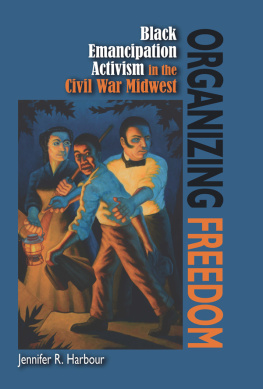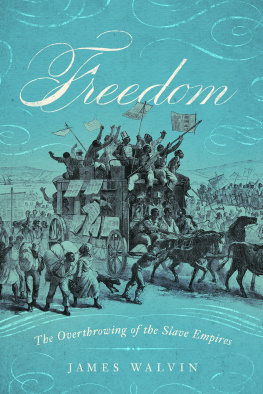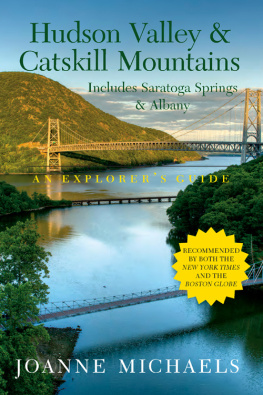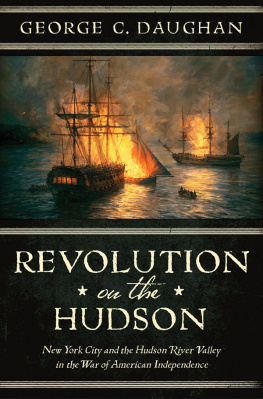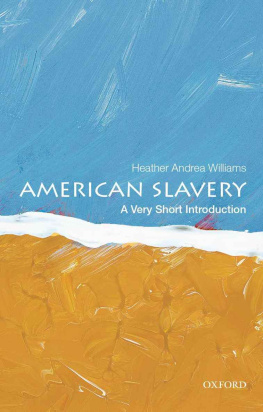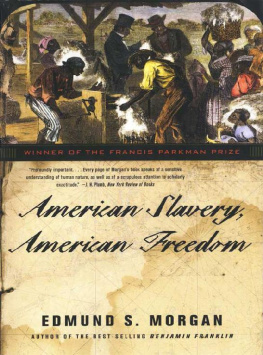Published by State University of New York Press, Albany
2017 State University of New York
All rights reserved
Printed in the United States of America
No part of this book may be used or reproduced in any manner whatsoever without written permission. No part of this book may be stored in a retrieval system or transmitted in any form or by any means including electronic, electrostatic, magnetic tape, mechanical, photocopying, recording, or otherwise without the prior permission in writing of the publisher.
For information, contact State University of New York Press, Albany, NY
www.sunypress.edu
Production, Ryan Morris
Marketing, Fran Keneston
Library of Congress Cataloging-in-Publication Data
Names: Groth, Michael E., 1965- author.
Title: Slavery and freedom in the Mid-Hudson Valley / Michael E. Groth.
Description: Albany, NY : State University of New York Press, [2017] | Series: SUNY series, An American region: studies in the Hudson Valley | Includes bibliographical references and index.
Identifiers: LCCN 2016031418 (print) | LCCN 2016045943 (ebook) | ISBN 9781438464572 (hardcover : alk. paper) | ISBN 9781438464589 (ebook)
Subjects: LCSH: African Americans--Hudson River Valley (N.Y and N.J.)--History. | African Americans--New York--Dutchess County--History. | African Americans--Hudson River Valley (N.Y. and N.J.)--Race identity. | Slavery--New York (State)--Dutchess County--History. | Slaves--Emancipation--New York (State) | Antislavery movements--New York (State)--History. | Hudson River Valley (N.Y. and N.J.)--History. | Dutchess County--History.
Classification: LCC F127.H8 G88 2017 (print) | LCC F127.H8 (ebook) | DDC 306.3/620974733--dc23
LC record available at https://lccn.loc.gov/2016031418
10 9 8 7 6 5 4 3 2 1
Acknowledgments
This volume is probably too many years in the making. I owe significant debts to many. I must begin by expressing appreciation to Thomas Dublin, under whose thoughtful mentorship this project began as a dissertation at Binghamton University more than two decades ago. Other historians at Binghamton at the time who contributed to my doctoral work in some way include Richard Dalfiume, Melvyn Dubofsky, Sarah Elbert, Paul Finkelman, David McBride, and Brendan McConville. Colleagues at Dutchess County colleges proved especially helpful in this projects early stages. Clyde Griffen of Vassar generously shared the research he and his wife Sally completed years ago for their study of mid-nineteenth-century Poughkeepsie. It was always a pleasure to work with Richard Wiles at Bard College, who very generously shared his expertise in local and regional history. His colleague Frank Oja instructed me in SPSS.
I have had several opportunities over the years to rethink my original dissertation in the form of conference papers, professional articles, book chapters, and public lectures. Stefan Bielinski, Thomas J. Davis, Douglas Egerton, Graham Hodges, Andor Skotnes, Nikki Taylor, Margaret Washington, Shane White, and Donald Wright provided criticism and advice as panel chairs, commentators, and conference participants. Richard Wiles and Wendell Tripp provided valuable editorial direction for early articles on manumission and the freedom struggle in the Mid-Hudson Valley. I must also thank Thomas Wermuth and the staff at the Hudson River Valley Review . Joseph Tiedemann, Eugene Fingerhut, and Robert Venables served as editors for an earlier version of chapter 2 that appeared in The Other Loyalists . Fergus Bordewich shared thoughts about the Underground Railroad in the Hudson Valley region. I am particularly grateful to colleagues who have joined me in exploring the black experience in the Hudson Valley. A. J. Williams-Myers first pointed to the richness of the regional African American experience decades ago. Myra Young Armstead and Edythe Ann Quinn have provided advice and encouragement throughout this long process. I got to know each of them when this project was in its infancy. An earlier version of chapter 3 appeared in Myras collection Mighty Change, Tall Within . I am especially thankful to Myra for providing the final push to get me to complete this book once and for all.
This volume would not have been possible without the indispensable assistance of many librarians, archivists, and state and local historians. The local history collection at Adriance Memorial Library in Poughkeepsie is extraordinarily rich, and the assistance Myra Morales and her staff provided many years ago proved invaluable. The Office of the Dutchess County Historian and different individuals associated with the Dutchess County Historical Society have been very helpful over the years. Eileen Hayden provided valuable assistance during the preliminary stages of this project. Lorraine Roberts and the founding members of the black history committee posed provocative questions and provided encouragement. Sheila Webb at the Church of Jesus Christ of Latter-day Saints in Poughkeepsie provided a wealth of historical and genealogical knowledge. I must also thank archivists, librarians, and staff at Bard College, Binghamton University, Cornell University, the Dutchess County Archives, the Dutchess County Surrogates Court, the Franklin Delano Roosevelt Library in Hyde Park, the Manuscript and Records Division at the New York Public Library, the New-York Historical Society, the New York State Archives and Library in Albany, the New York State Historical Association in Cooperstown, the Pleasant Valley Historical Society, the Rhinebeck Historical Society, the Schomburg Center for Research in Black Culture, the Stanford Public Library, the Starr Library in Rhinebeck, Vassar College, and Wells College. The Poughkeepsie City School District graciously shared early school records. Reverend McLaughlin, pastor of Poughkeepsies Smith Metropolitan AMEZ Church in the early 1990s, provided information on early church history.
Teaching obligations and administrative responsibilities at a very small liberal arts college have delayed the completion of this project, but I would like to think that more than two decades as a faculty member at Wells College have enriched the volume in other ways. Teaching a wide variety of courses in US history has allowed me to appreciate the complexity of the American experience. Thoughtful questions and perceptive observations from many Wells students over the years have allowed me to perceive issues and questions through their eyes. I must also thank my colleagues at Wells, whose provocative questions at different Faculty Club presentations over the years forced me to think about my work from different disciplinary perspectives. A sabbatical leave enabled me to complete the manuscript.
Several individuals have assisted me in the final stages of this project. I thank the anonymous readers of the preliminary manuscript for their perceptive observations and criticisms. SUNY Press acquisitions editor Amanda Lanne-Camilli helped to usher me through the preliminary stages of the publication process. I am especially grateful to Jessica Kirschner, who promptly and patiently answered my many questions. Ryan Morris guided me through the final stages of the production process. Lisa Hoff in the Wells College library helped to track down obscure citations. David Foote at Wells College, Patricia Moore at the Dutchess County Historical Society, and Dyan Wapnick at Saint James Episcopal Church in Hyde Park helped to identify and improve digital images.


